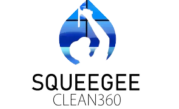Solar panels represent a significant investment in renewable energy, transforming sunlight into electricity for homes and businesses. However, many solar panel owners overlook a critical aspect of maintaining their system’s optimal performance: proper cleaning and maintenance.
Understanding Solar Panel Contamination
Solar panels are constantly exposed to environmental elements that can significantly reduce their efficiency. Dust, dirt, bird droppings, pollen, and other debris accumulate over time, creating a barrier that blocks sunlight and diminishes energy production. Research suggests that dirty solar panels can experience up to a 25% reduction in energy output, making regular cleaning not just a maintenance task, but a crucial performance optimization strategy.
The Science Behind Solar Panel Efficiency
Solar panels work by converting sunlight into electrical energy through photovoltaic cells. Any obstruction on the panel’s surface can interrupt this process. Imagine each particle of dirt as a tiny barrier preventing sunlight from reaching the solar cells. The more contamination, the less energy your panels can generate.
Professional Cleaning vs. DIY Approaches
While some homeowners opt for professional cleaning services, others prefer a do-it-yourself approach. Professional services offer thorough cleaning with specialized equipment, but they can be costly. Homeowners can effectively maintain their solar panels with the right techniques and tools.
Essential Cleaning Techniques
Water is the primary cleaning agent for solar panels, but not just any water will do. The goal is to remove dirt and debris without causing damage to the delicate panel surface. Soft, clean water and non-abrasive tools are key to successful cleaning.
Water quality matters significantly in this process. Tap water often contains minerals that can leave residue on solar panels. Distilled or deionized water is ideal for preventing water spots and mineral buildup. If using a hose, ensure the water pressure is gentle to avoid potential damage.
Timing and frequency of cleaning are equally important. Early morning or late afternoon are the best times for cleaning. Avoid midday when panels are hot, as sudden temperature changes can potentially crack the glass. Most residential solar panel systems benefit from cleaning 1-2 times per year, though this can vary depending on local environmental conditions.
Tools and Materials for Effective Cleaning
Selecting the right tools can make a significant difference in solar panel maintenance. Soft microfiber cloths provide gentle cleaning without scratching. Extension poles with soft brushes help reach difficult areas. Squeegees with rubber blades can effectively remove water without leaving streaks. In some cases, a biodegradable, mild soap might be necessary for stubborn dirt.
Safety and Maintenance Considerations
Solar panel cleaning involves working at heights and with electrical equipment, so safety must always be a priority. Always turn off the solar system before cleaning. Use proper safety equipment and consider professional help for roof-mounted panels. Check manufacturer guidelines for specific cleaning recommendations.
Environmental factors play a crucial role in determining cleaning needs. Urban areas with high pollution might require more frequent cleaning, while rural areas with less dust might need less maintenance. Regions with frequent bird activity or high pollen counts demand more regular attention.
Technological Innovations in Solar Panel Maintenance
The solar industry continues to evolve, introducing innovative solutions for panel maintenance. Self-cleaning panel coatings, automated cleaning systems, and robotic cleaning solutions are emerging technologies that promise to make maintenance easier and more efficient. Advanced monitoring technologies can now track panel efficiency in real-time, helping owners identify when cleaning is most necessary.
Consistent maintenance offers multiple advantages beyond simple cleanliness. By keeping solar panels clean, owners can maximize energy production, extend panel lifespan, reduce long-term maintenance costs, and ensure optimal system performance.
Ultimately, understanding and implementing proper cleaning techniques allows solar panel owners to ensure their systems operate at peak efficiency, translating to better energy production and significant long-term cost savings.


